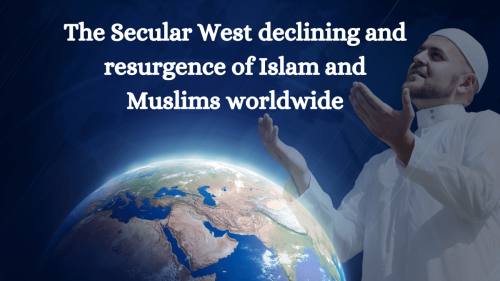International Protection for Palestinians Urgently Needed
Nearly two months have passed since the outbreak of the Palestinian uprising and very little has been done to provide any meaningful protection for a largely unarmed nation, whose casualties are estimated in the thousands. Most Arab and Muslim countries have made it clear they are unwilling or unable to intervene militarily on behalf of the Palestinians, and the United Nations is also failing to provide protection forces.
The United States says that no such forces will be deployed as long as Israel objects to it. Israel claims that such deployment is not dictated by the by the so-called peace agreement signed with the Palestinians since Oslo in 1993, and UN Secretary General Kofi Annan seems to be following the same political approach used by the European Union, asking both Israelis and Palestinians to show restraint and to halt the violence. Meanwhile, a growing campaign to force the United Nations to live up to its responsibilities by protecting the Palestinian population in the West Bank and Gaza from the wrath of the Israeli army is experiencing rapid growth.
"If we thought that instead of 200 dead over there, 2,000 dead would finish the matter once and for all, then maybe we would have used much more force," said Israel Prime Minister Ehud Barak in a recent interview. Barak, according to Israelis, is considered a "dove", a term used to describe moderate Israeli politicians. It is not necessary to reveal statements made by Israeli "hawks" in response to the Palestinian uprising.
However, such statements can hardly be dismissed as tactical threats. They are an honest reflection of Israel's military abuses in the Occupied Territories, which were strongly condemned by prominent international human rights organizations. London-based Amnesty International described such abuses as ones that "could constitute war crimes."
Civilians in time of war are entitled to (according to international law and norms of civil society) immediate, meaningful and swift protection that would halt state sponsored aggressions. Article I of the Fourth Geneva Convention dictates that the High Contracting Parties must ensure respect for its provisions in all circumstances.
In his "Report of the Secretary-General to the Security Council on the Protection of Civilians in Armed Conflicts," issued in September 8, 1999, Kofi Annan wrote, "preventive deployment will be of particular value in situations where the legacy of past conflict has increased the risk of mass violations of human rights". Annan proposed a seemingly decisive formula to execute such protection including the establishment of "temporary security zones," and "safe corridors for the protection of civilians."
But Annan's enthusiasm appears to be fading regarding this matter, and his language is milder than ever before, as Palestinian rights continue to be violated.
Although Israel's Lebanon-style shelling of the Gaza Strip on November 20, was condemned "in the strongest terms possible" according to a statement issued by Annan, his list of demands was still governed by weakness and indecisiveness. Strangely, while Israeli helicopters, tanks and ships ruthlessly bombarded Palestinian cities; Annan urged both parties to stop the violence.
In his statement read by spokesman Fred Eckhard in New York, Annan appealed to both Israel and the Palestinian Authority to "cease all escalatory actions and to do their utmost to stop the violence."
The United Nation's position is only a link in a chain of disappointing yet largely expected weak stands adopted by Western countries who ceaselessly preach human rights and seemingly strive to uphold them.
In a statement issued by 15 European Union foreign ministers in Brussels one day after Israel massive shelling of Gaza, the EU exhorted "the Israeli and Palestinian Authorities to respect without delay the commitment they undertook in Sharm el-Sheikh five weeks ago and in Gaza on November 2."
Concurrently, the United States remained distinctly biased toward Israel, blaming the victim while continuing to preach its honest broker rhetoric.
Encouragingly, Arab and Muslim states, organizations and other international groups are beginning to realize the urgent need to deploy protective forces in the Occupied Territories. Such a realization is likely an outcome of Arab and Muslim governments' inability to play a greater role in protecting the Palestinians.
Both the Arab League and the Organization of the Islamic Conference in their latest conferences in Cairo and Doha called for UN protection. The idea seems to be gaining more momentum after Egypt's decision to recall its ambassador from Israel.
Now active and organized Arab and Muslim diplomacy in the United Nations, backed by the political support from the non-allied nations, is pressing the UN to approve the Palestinian request for the Security Council to dispatch 2,000 military observers.
Israel's refusal to permit such deployment is a clear indication of the political embarrassment such steps may bring about. One must not expect much of unarmed UN observers, for two such missions, although on a much smaller scale already exist (Jerusalem-based UN Truce Supervision Organization and Hebron-based Temporary International Presence in Hebron). But as all legitimate and legal options to defend the vulnerable Palestinian population were cast aside for whatever reason, UN protection is one of very few options worth exploring.
What signifies such an option even more, and therefore worries Israel, is that a UN presence in the West Bank and Gaza might lead to a greater return of the UN's role in the Middle East conflict, which has thus far been dominated by the United States. It's true that the UN might not stop Israel's barbarism but it will, at least create a different environment that just might remind the world of Israel's illegal occupation and its defiance of international law.
_____________________________________________
Ramzy Baroud is a freelance journalist living in Seattle, Washington. He is also a regular contributor to iviews.com.
Topics: Benjamin Netanyahu, Conflicts And War, Occupation, United Nations
Views: 910
Related Suggestions

















